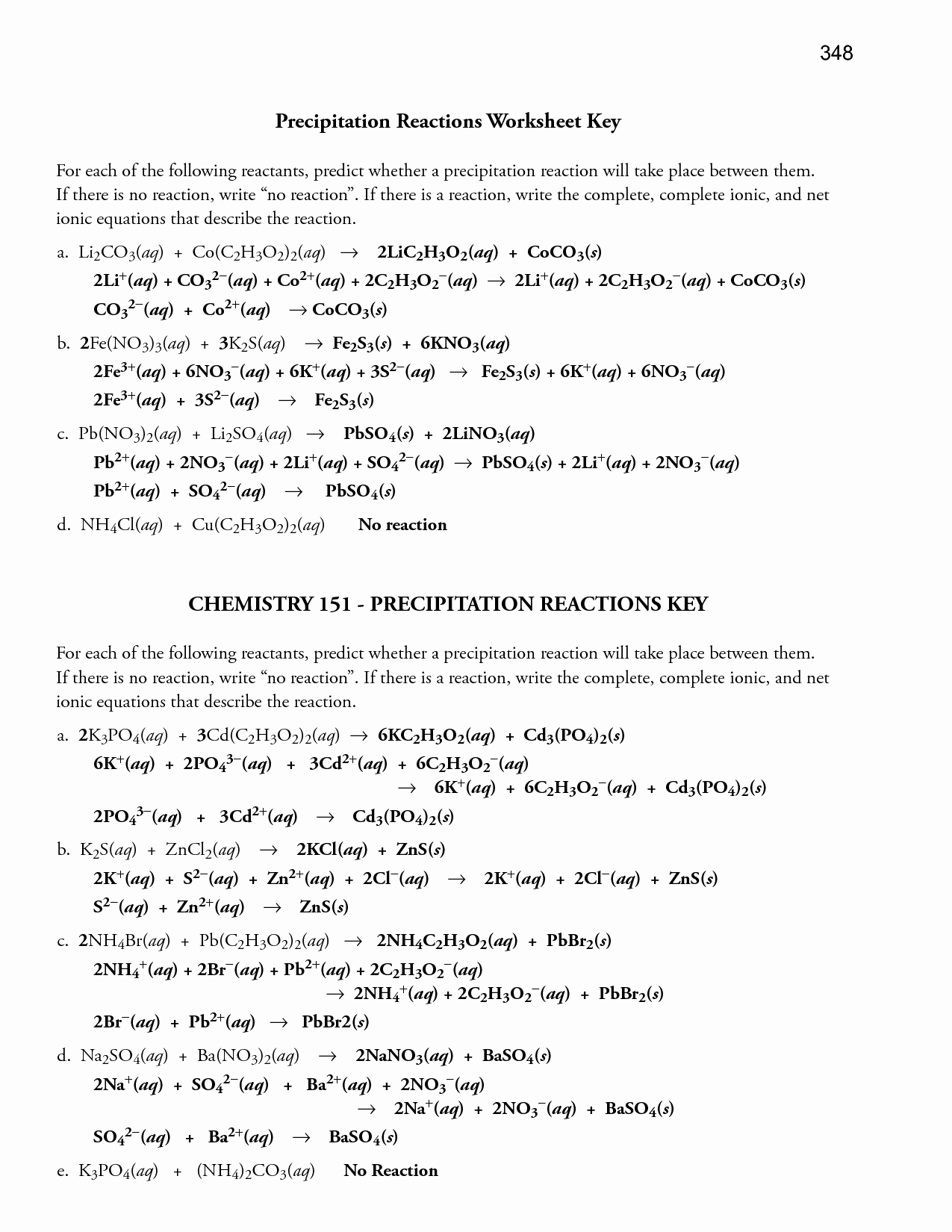Six Types of Chemical Reaction Worksheet Explained

🔬 In the fascinating world of chemistry, understanding chemical reactions is fundamental. This guide dives into six common types of reactions, exploring their mechanisms and implications.
1. Synthesis (Combination) Reactions

Synthesis reactions, often called combination reactions, involve two or more substances combining to form a single product. Here’s how they are represented:
General Formula:

A + B → AB
Example:
When sodium (Na) reacts with chlorine (Cl) to form sodium chloride (NaCl), the equation looks like this:
2Na + Cl2 → 2NaCl
Such reactions are crucial in both industrial and laboratory settings due to their simplicity and often exothermic nature.
2. Decomposition Reactions

In contrast, decomposition reactions break down a single compound into two or more simpler substances:
General Formula:

AB → A + B
Example:
Calcium carbonate (CaCO3) decomposes when heated into calcium oxide (CaO) and carbon dioxide (CO2):
CaCO3 → CaO + CO2
These reactions are key in understanding thermal stability and the behavior of compounds when heated.
3. Single Displacement (Single Replacement) Reactions

Here, one element displaces another in a compound:
General Formula:

A + BC → AC + B
Example:
When magnesium (Mg) reacts with hydrochloric acid (HCl), it displaces hydrogen:
Mg + 2HCl → MgCl2 + H2
Understanding the reactivity series helps predict the likelihood of such reactions.
4. Double Displacement (Double Replacement) Reactions

Two compounds swap ions or elements with one another:
General Formula:

AB + CD → AD + CB
Example:
Precipitation reactions are a common subset here, for instance:
AgNO3 (aq) + NaCl (aq) → AgCl (s) + NaNO3 (aq)
These reactions often produce a precipitate, gas, or water.
5. Combustion Reactions

This reaction involves a hydrocarbon or another compound with oxygen, typically releasing heat and light:
General Formula:

CxHy + O2 → CO2 + H2O
Example:
The combustion of methane (CH4) is:
CH4 + 2O2 → CO2 + 2H2O
Combustion is pivotal in energy production and environmental chemistry, especially concerning emissions.
6. Acid-Base (Neutralization) Reactions

These occur when an acid reacts with a base to produce salt and water:
General Formula:

HA + BOH → BA + H2O
Example:
The reaction between hydrochloric acid (HCl) and sodium hydroxide (NaOH) yields:
HCl + NaOH → NaCl + H2O
Such reactions are fundamental in titration, buffering solutions, and maintaining pH levels in biological and industrial processes.
Summary:

- Synthesis involves combining substances.
- Decomposition involves breaking down substances.
- Single Displacement involves element swapping.
- Double Displacement involves swapping ions or elements between compounds.
- Combustion involves burning with oxygen.
- Neutralization involves neutralizing acids and bases.
Understanding these reactions not only helps in grasping fundamental chemistry but also in practical applications, from food processing to environmental management. The ability to predict, control, or alter the outcomes of these reactions is essential for chemists and engineers, showcasing the interconnectedness of all scientific knowledge.
How can I identify the type of chemical reaction?

+
Look at the reactants and products. If a single compound breaks down, it’s likely a decomposition. If two or more combine, it’s synthesis. If elements or ions swap places, think displacement. Burning indicates combustion, and reactions producing salt and water hint at neutralization.
Are there reactions that don’t fit into these categories?

+
Yes, there are more complex or less common reactions like redox (where oxidation states change), isomerization, polymerization, and others that don’t neatly fit into these six categories.
Can one reaction produce multiple types of changes?

+
Absolutely! A reaction can involve elements of different types, like combustion being exothermic and also undergoing oxidation-reduction changes.



